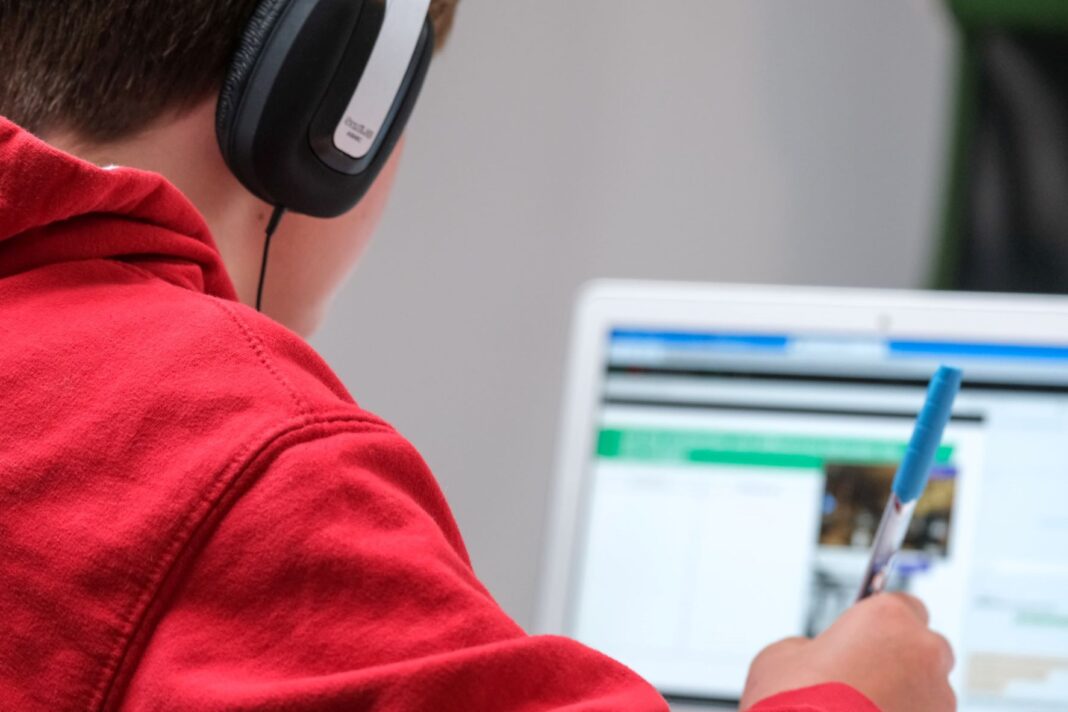UNITED STATES—Students today are fortunate to be living in the era of Google and the Internet where information is readily and easily accessible more than ever before. To put things into perspective for you, the biggest search engine giant – Google processes more than 40,000 queries every second on average. This is a whole lot of learning on average.
The pandemic and resulting lockdown forced schools and colleges to shut doors and move to e-learning where teaching is done remotely or on digital platforms. What’s encouraging is that researchers are showing that online learning helps better retention of information and is less time-consuming, which means it’s here to stay.
Thanks to tools like learning apps, virtual tutoring, online learning software, and video conferencing, learning today has become instantaneous and accessible for all. This is a massive advancement in terms of student education as well as adult learners.
But not everyone is proficient in technology and the major concern for many is how to successfully pursue online learning. Here are the top tools that make online education effective.
Distance Learning Management Systems
As we already know, more and more institutions and organizations are an option for distance learning these days to provide access to educational information and track the progress of pupils. One of the best advancements in this field has been the Learning Management Systems or LMS, which is a software to administer, document, track, report, and deliver courses.
The LMS helps teachers effectively deliver materials, hold tests, track student performance, and keep records. On the other hand, there are a ton of benefits for students as well. They can access the study material any time from anywhere, have easy access because of a centralized location, collaborate with other students on different tasks, study at their own pace, and convenient assignment submissions, among others.
Supplemental Educational Resources
Speaking of assignment submissions, students these days have a truckload of online resources at their disposal to aid in their school work. Right from preschool till graduation, there are online resources available to supplement education. From assignment topics to book summaries, the world of online resources is vast.
Say you’re having trouble finishing a book review assignment, you can head to Sweetstudy’s book summaries, search the assigned book and go through the summary to better understand the book content that will aid you in framing a great book review for your assignment.
Additionally, there are supplemental online courses, which help students learn above and beyond what’s being taught in their school. These help students struggling with a particular subject to gain further assistance and insights. Even beyond the educational arena, there are supplemental courses for anyone who is looking to extend their knowledge or to make strides in their career.
Massive Open Online Course (MOOC) Platforms
Massive Open Online Courses or MOOCs refer to online classes that are free for all and are offered on a large scale. While these courses are provided by top universities like Stanford, MIT, and Harvard, enrollment is not required in a particular school or university. If the statistics are to be believed, the MOOC market is currently valued at $5.16 billion and is expected to touch $25.33 billion by 2025. In 2020 alone, 180 million learners used MOOCs globally.
While these courses are free to join, learners will need to sign up on a MOOC platform. Some of the most popular MOOC platforms are Udemy, Coursera, edX, and Udacity, among others. These platforms offer study resources, courses, discussions, and quizzes to their learners. Students can access any class of their choice for free and also interact with subject experts on MOOC forums. These platforms are without a doubt, the best place to extend your online education further.
Collaboration Platforms
When it comes to learning, collaboration refers to learning together by working in groups on educational projects or assignments. This is great for learning because when different people come together, ideas complement each other to help break down information silos, resulting in an enhanced learning experience for everyone involved. This was an integral part of learning before COVID-19 happened and institutions were shut down.
However, various online collaboration platforms allow teachers and students to connect online in a centralized location and work together. Today there are a ton of online education collaboration tools like content curation tools, online discussion tools, virtual classrooms, collaborative authoring tools, and more. Depending on the task, teachers can select the most appropriate tool to enhance the entire learning process.
Online learning is not just the need of the hour but also very convenient and practical. Thanks to various tools and numerous resources available online, learners can quickly conveniently access the material and learn at their own pace. With the advancement in technology, the online learning industry is only expected to evolve further and might be the future of learning.






